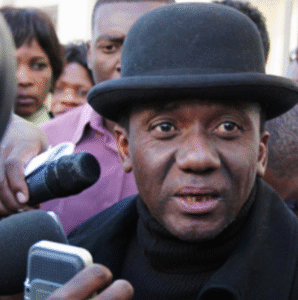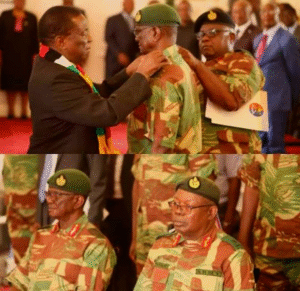United in Patriotism: A Study in Contrasts Between UK and Zimbabwean Leadership
My commitments to World Press Freedom Day meant I only caught fragments of the momentous event in the United Kingdom, yet even these snippets were enough to stir emotions. Despite no personal ties to this Western European nation, witnessing the indomitable unity and fervent pride of its citizens for their nation and institutions left a profound impact.
Such displays of nationwide cohesion always resonate deeply with me. The spectacle of a country united in patriotism is, to me, the embodiment of national strength.
The sight of a multitude of individuals waving their national flag in support of their newly inaugurated monarch evokes an ineffable sense of elation that is nearly overwhelming. The cries of “God save the King!” resonate deeply, not because they come from politically zealous individuals or impoverished communities coerced into attendance, but because they emanate from a population genuinely devoted to their monarch.
This display was not merely a grand spectacle for the public eye or an attempt to inflate the crowd numbers. Even though there were those who protested against the monarchy, arguing it to be an outdated, undemocratic drain on public finances, it was evident that the overwhelming majority – including many who travelled from overseas – were there out of genuine admiration for the monarchy.
This led me to wonder why we don’t see similar displays of patriotic unity in Zimbabwe. Our President, Emmerson Dambudzo Mnangagwa, attended King Charles III’s coronation. Did he ever question why he doesn’t receive comparable expressions of genuine affection from ordinary Zimbabweans?
The truth is that the ruling ZANU PF party often resorts to pressure tactics, coercing less privileged communities into demonstrating false support born out of fear or promises of sustenance, rather than real affection. Without the lure of agricultural support, food, entertainment, or the threat of severe repercussions, would Zimbabweans willingly rally for Mnangagwa?
Certainly, there are those who feign loyalty out of self-interest, hoping to gain positions or privileges. However, Mnangagwa’s leadership has largely resulted in widespread hardship and destitution. Who would willingly support a leader whose actions have plunged their lives into such poverty?
How can there be any genuine affection for a leader who prioritizes personal enrichment over the welfare of his citizens, openly looting national resources for personal gain, or those of his close allies?
What sort of attachment could any sane individual have towards a regime known for brutally suppressing any opposition, especially from a population left destitute and desperate due to their policies?
Thus, the reason why Zimbabwe lacks the patriotic unity seen in the United Kingdom becomes clear. It is nearly impossible to envisage similar scenes unfolding in Zimbabwe in the foreseeable future.
Why would they, when we are governed by a callous, self-serving leadership preoccupied with their personal interests over the welfare of ordinary Zimbabweans?
However, witnessing the British cry, “Long live the king,” I too find myself echoing the sentiment. Indeed, any nation fortunate to have a leader they sincerely love and respect should be allowed to cherish that leader indefinitely.




